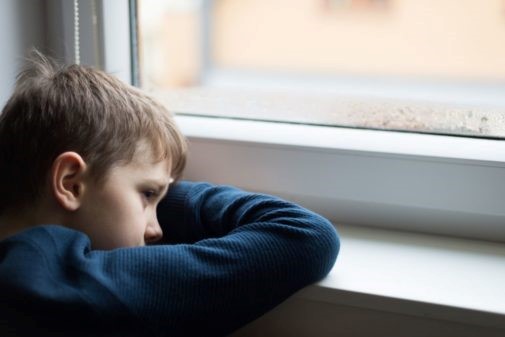How to Talk To a Child About Grief and Death
 Death and the resulting grief is difficult for everyone. But how do adults support a child experiencing the loss of a loved one, especially if you, too, are processing loss?
Death and the resulting grief is difficult for everyone. But how do adults support a child experiencing the loss of a loved one, especially if you, too, are processing loss?
“Children grieve as we do when someone they love dies,” says Rev. Loretta Ransberg, a pediatric staff chaplain and bereavement coordinator at Advocate Children’s Hospital. “We need to recognize and acknowledge their grief. It’s a natural healing response to loss no matter your age.”
Rev. Ransberg says a great first step for adult caregivers and parents is to become educated about grief.
“We have the advantage of the internet and books to help us,” she says. “We pass on what makes us uncomfortable, and kids will pick that up. So the more comfortable we are about a subject, the more effective we can be.”
“We should always convey empathy to let children know their feelings matter,” she says. “They need to know what they’re feeling is respected and that they are safe. We need to be honest with children no matter their age.”
But what if we, too, are grieving? Do we need to do this in private?
“Don’t avoid grieving in front of your child,” Rev. Ransberg says. “This helps normalize the grieving process. Answer questions when they ask you. Children see things in the media and on social media, and they need answers. Respond to questions openly and honestly. Communicate to children in a language they understand, and remember you wouldn’t speak to a preschooler the same as you would a teen or a tween.”
How do we know we are doing enough to support them?
“Consider help from a professional when you as a caregiver feel the child is not themselves. In a book titled, “A Child’s View of Grief,” Dr. Alan Wolfelt, well-known author and grief counselor, provides symptoms to look for in adolescents: depression, sleeping difficulties, etc.
We must always remember grief is not a disease. Counselor and writer Dr. Earl A. Grollman said: “The only cure for grief is to grieve.” If you simply love the grieving child and be there when they need you and ask for help, you are supporting them.
This article contributed by: Holly Brenza
Tags: #child, #death, #grief


Comments are closed here.